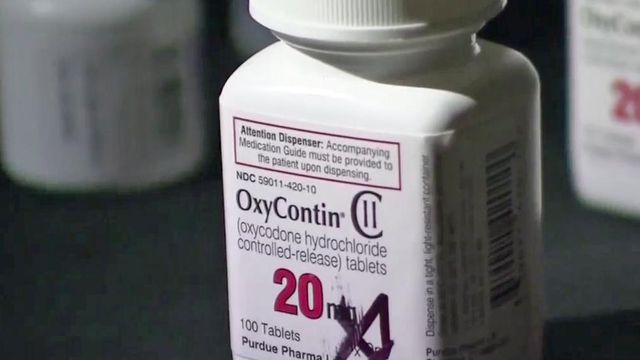'Potential game-changer:' Town of Cary will screen human waste to measure opioid use
To do their part in addressing the opioid crisis, the Town of Cary will consider screening sewage to track down users, raising questions about privacy and the logistics of the plan.
Posted — UpdatedTo do their part in addressing the opioid crisis, the Town of Cary will consider screening sewage to track down users, raising questions about privacy and the logistics of the plan.
Town leaders say there will be roughly 10 sampling stations within the town’s wastewater collection system that will measure the concentration of opioids in human waste and wastewater.
“So, for an area of like 16,000 people, in a day’s time, that’s about 800,000 gallons a day that will pass this sampler,” said Deputy Town Manager Mike Bajorek. “This will be sent back to Boston, where they will be running a test to get a chemical analysis.”
Each station will attempt to measure the level of opioid use in an area of about 3,000 to 5,000 homes. The results will estimate the daily rate of opioid usage per every 1,000 people in the town.
Mayor Harold Weinbrecht is optimistic about the plan.
“Cary’s innovative and experimental approach at monitoring wastewater is a potential game-changer. It offers a new way to collect data to gauge the extent of opioid abuse in a community, rather than the number of overdoses, and puts that information in the hands of those who can provide pathways to recovery,” he said.
Ultimately, the goal is to save lives by identifying the prevalence of different opioid drugs.
“One of which would be heroin, but the other 15 are prescription drugs like Codeine, Oxycodone, those sorts of things,” Bajorek. said
Town officials have not determined locations for the sampling stations, but officials said the data collected will not allow them to pinpoint a specific home.
“While this is a technical project, it really is about creating a community discussion associated with the misuse of prescription drugs and opioids and if we can start this conversation with our families, we feel this will result in stronger families,” Bajorek said.
The town received $100,000 to test the plan and Cary is competing against 35 other cities and towns across the country to receive $5 million to implement the plan.
Related Topics
• Credits
Copyright 2024 by Capitol Broadcasting Company. All rights reserved. This material may not be published, broadcast, rewritten or redistributed.






